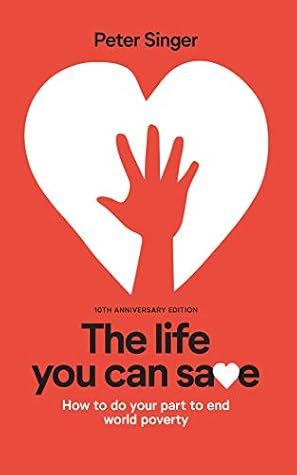More on this book
Community
Kindle Notes & Highlights
by
Peter Singer
Read between
February 21 - March 4, 2025
At its core, Singer’s book asks us to consider a very simple truth: a life is a life, no matter where that life lives. A human being over there is no less valuable than a human being over here. It then asks us, given that simple transitive property of inherent human value, to consider treating that life over there with the same care and attention we give to lives over here. That’s all. That’s the “ask.” If you want the Cliff’s Notes version of the ideas within these pages, you now have it.
But this is exactly the point. Because more important than what you feel when you read this book is what you will not feel: complacency.
what am I doing, as a human being on earth, to help the less fortunate? Can I, perhaps, do a little bit more? And if so, how? Which are questions worth asking.
Poverty traps you, and you lose hope of ever escaping from a life of hard work for which, at the end, you will have nothing to show beyond bare survival.[xii]
First premise: suffering and death from lack of food, shelter, and medical care are bad. Second premise: if it is in your power to prevent something bad from happening, without sacrificing anything nearly as important, it is wrong not to do so. Third premise: by donating to effective charities, you can prevent suffering and death from lack of food, shelter, and medical care, without sacrificing anything nearly as important. Conclusion: therefore, if you do not donate to effective charities, you are doing something wrong.
There is, at first glance, something attractive about the political philosophy that says: “You leave me alone, and I’ll leave you alone, and we’ll get along just fine.” It appeals to the frontier mentality, to an ideal of life in the wide-open spaces where each of us can carve out our own territory and live undisturbed by the neighbors. Yet there is a callous side to a philosophy that denies that we have any responsibilities to those who, through no fault of their own, are in need.
This “identifiable victim effect” leads to “the rule of rescue”: we will spend far more to rescue an identifiable victim than we will to save a “statistical life.”
I guess basically one wants to feel that one’s life has amounted to more than just consuming products and generating garbage. I think that one likes to look back and say that one’s done the best one can to make this a better place for others. You can look at it from this point of view: what greater motivation can there be than doing whatever one possibly can to reduce pain and suffering?


